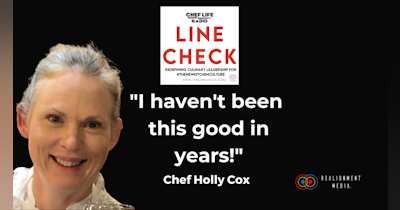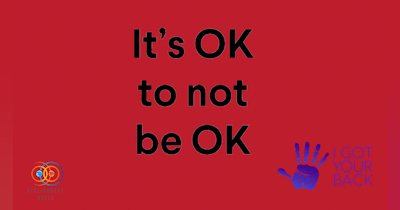As First Printed @ Foodabletv.com
If you’re a chef who prides him/herself on your creativity then you’ll probably do anything, short of pulling your arm out of your socket, before you engage in a conversation about systems. Nothing clears a crowd or dries the mouth quicker than someone trying to convince you that systems work. Against the odds and better judgment, allow me a moment to try.
You see, I’m not some stiff collar or management school graduate, steeped in book knowledge without the benefit of getting my ass kicked on the street. Nor was I one to suffer fools lightly; at least by those that hadn’t run a shift in my clogs. On the contrary, I was just like you; sure and steady, secure in the “why” of what I know.
I became an Executive Chef at the tender young age of 28. That first year I made plenty of mistakes; a true trial by fire if you will. My saving grace was that I had a Food & Beverage Director that believed in me and a Sous Chef that was fiercely loyal despite my inexperience and ineptitude.
Assured as I was that the hard times were over and I had learned all there was to know about successfully running a kitchen, I then took a job with a small seafood chain with a handful of properties through the Midwest and Florida coast.
I landed in Ft. Lauderdale, the southernmost restaurant, with a mission to increase sales and improve the bottom line by bringing some creativity to the menu. The chain had already established itself by offering the freshest fish and seafood possible, presented in a steadfast, if pedestrian, manner.
Consistency was key.
An Uphill Battle
At that time, all the kitchens in the chain had been headed by Kitchen Managers who followed the recipes and structure as had been handed down from on high by the original legendary chef, Chef Larry.
I, and other chefs to follow, were hired in the face of that tradition as a way of making the menus and the restaurants themselves relevant again, but the operation of those kitchens was to still be run with the tried-and-true systems that had made the chain successful, to begin with.
We had Staffing Guides based on cover counts by the hour, Purchasing Sheets, and Cut Sheets that tracked the loss by the ounce, and had our feet held to the fire for all of it.
As you can imagine, for a youngling who was a bit full of himself, this chafed me in a way that I had not experienced before, and no box of cornstarch was going to ease the sting. I related to it as some sort of onerous control that ownership was trying to exert over me, throttling my creativity and holding me back from making the impact that I knew I could bring to bear, if only I were given the chance.
But truth be told, those systems saved my bacon more times than I can count. The restrictions that I complained about were, in fact, a gift to a young chef who, up to that point, did not really understand how planning — or the lack of it — would impact not only the crew but every guest who came in to eat.
When you’re serving 350 Early Birds in an hour-and-a-half and a total of 900 for the night, there is little room for error and everyone had better follow the script or things get very bad, very quickly. Every single time a shift went sideways it was because I thought I had a better way to do things or I had ignored a system that had been created to deal with that particular possibility.
In post-shift reviews on the back dock, I became adept at asking two questions of my comrades in arms:
- Does the system work?
- Do we have the right person running the system?
Often the answers were illuminating, if not humbling.
As Anthony Bourdain has said, “There’s nothing like the restaurant business to pound some humility into you.”
Or as Dave Milus once said to me, “Adam, you can either be a creative genius and be forever tied to the stove or you can learn how to be a business owner and mentor geniuses.”

A Shift in Mindset
Suitably chastised, I decided that I would make my bones by gaining some mastery around systems.
Merriam-Webster states that a system is “a set of things working together as parts of a mechanism or an interconnecting network.”
I’ve met and coached some chefs who, in their minds, have their whole kitchen clocked. Their frustration comes from the fact that their crew can’t read their minds or anticipate their direction, which is why they invariably take on so much of what needs to be done with little to no confidence in their crew.
A “system” is only a system if it can be:
- Replicable
- Trainable
- Measurable
Ultimately, the only reason why one would want to step back and take a long look at their operation from a position of neutrality is that they want to be successful. I’d offer that the definition of operational success is shifting in our craft; it’s much more than an improved bottom line or guests who leave your establishment more satisfied with the experience that you and your team have created.
How much time do you get to spend with your family? Have your loved ones gotten used to having small slivers of you as part of you is preoccupied or worried about what’s going on at work? Have you given in to the expectation that you, as the chef, are married to your kitchen, bound to your staff, or indentured to your guests?
Do you ever really get to take your apron off, metaphorically speaking?
Is this going to continue to be about you or are you going to make it about the team?
What kinds of future chefs and leaders are you training? Is your operation an incubator for greatness yet to be realized or are we just gutting it out one more hour, one more dish, one more shift?
Are you thriving in every sense or is surviving the next battle all you can hope for?
Hope, I am fond of saying, is not a strategy, nor is it a formula for success.
The guest receives and sees a plate of Chicken Tagine; we as chefs see something different. We’ve already deconstructed the dish into its individual raw components, all the way down to the seasonings, and rebuilt it, in real-time, in perfect synchronicity into the dish that sits glistening in the pass.
Systems work exactly like that.

Advantages of Systems
Successful systems - vetted and bulletproofed - allow you to share the responsibility of overseeing every aspect of your kitchen’s production, freeing you up to train and mentor your staff in their individual successes.
Systems provide your staff an opportunity to learn more intricate aspects of the operation while honing the interpersonal skills of you and your management crew, such as active listening and effective communication.
Systems allow you to identify and address potential problems before they blow up in your face. If you’ve gone to the trouble of pre-portioning all proteins down to bagged sets and created vegetable sets per dish, then you’re not quite done with your due diligence. Next comes the prep plan based on sales averaged over the last four Wednesdays and the forecast for tonight.
Tracking it all lets you see that you’ve got a problem with King Crab long before you’re called to the carpet about a food cost that’s a point-and-a-half over budget.
With solid systems, the right people trained in those systems along with the checks and balances brought by consistent monitoring, allows a chef to leave his place of business secure in the knowledge that everyone knows what to do, and why it needs to be done.
Keep It Simple
Now that you have decided to use systems for your emancipation, don’t let your brilliance get the better of you by creating complex systems; human nature being what it is, systems have to be simple if they are to be followed religiously.
It’s better to develop several simpler routines that combine to deliver the desired result than one grand scheme that only you understand. This will only cause frustration for you and disappoint those who are trying to do right by the system.
Once a system has been created or adopted — there are so many good ones already out there — then you can focus on training someone in following it. There are as many different systems as there are skill levels in your operation. An important consideration is, “Do I have the right person running the system?’
Don’t make the mistake of matching the wrong skill set with the right system in the hopes that it will be a “training opportunity.” This can be costly in hours wasted but more importantly, it can take the wind out of someone’s sails and derail, for a time, a promising prospect’s self-esteem.
In his book, “The Peter Principle,” Laurence Peter says, “traditionally the selection of a candidate for a position is based on the candidate's performance in their current role, rather than on abilities relevant to the intended role. Thus, employees only stop being promoted once they can no longer perform effectively, and “managers rise to the level of their incompetence.”
A great prep cook, as some of us know, does not necessarily make a great line cook; why set them up for failure? Your success, and in a very real sense, your legacy, depends on nurturing talent where it’s at and not throwing someone to the wolves just because you’re short on sauté tonight.
If you, on the other hand, have had the same experience as I, when looking through the pass, notice that one of your dishwashers is now on the pizza station pulling dough for the third Saturday in a row without being asked, then you know there is something good happening in your organization.
Enthusiasm and a willingness to try is a healthy sign of a well-systemized kitchen, wouldn’t you say?



